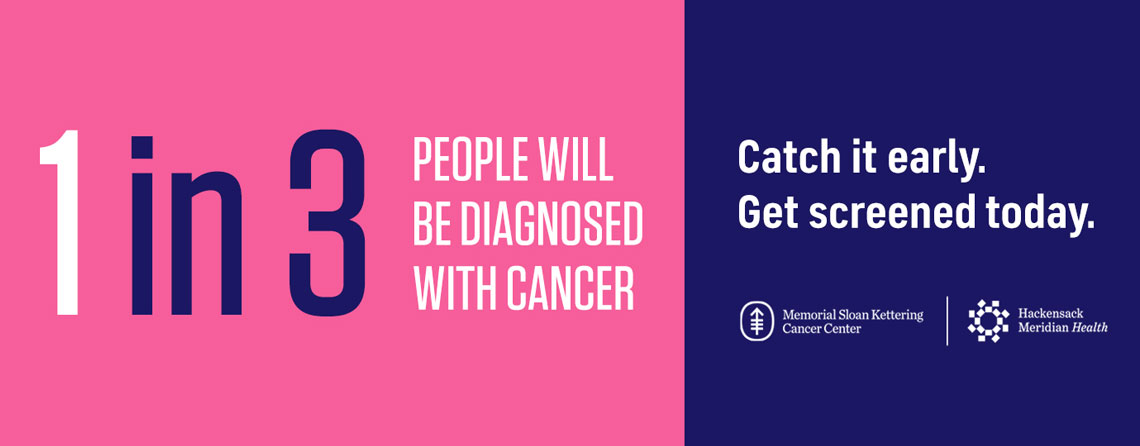
Cancer Screenings in New Jersey
Detecting Cancer Early
At Hackensack Meridian’s John Theurer Cancer Center, part of the Georgetown Lombardi Comprehensive Cancer Center, we are dedicated to early cancer detection and prevention. As an NCI-designated Comprehensive Cancer Center, we provide access to cutting-edge cancer screenings and preventive care.
In 2016, we formed a clinical partnership with Memorial Sloan Kettering Cancer Center to offer New Jersey communities the best in cancer prevention and care. With Hackensack Meridian Health’s integrated health care network and Sloan Kettering’s specialized cancer expertise, we provide comprehensive cancer screenings that are vital for early detection, treatment, and cure.
Why Early Cancer Detection is Key
Early detection is one of the most effective ways to prevent, treat, and cure cancer. Regular cancer screenings play a crucial role in identifying cancer at its earliest and most treatable stages. Schedule your appointment today by calling 1-833-CANCER-MD or request an appointment online.
We offer screenings for:
- Breast cancer (Mammography)
- Cervical cancer (Pap test or HPV test)
- Colorectal cancer (Colonoscopy, flexible sigmoidoscopy, or stool/DNA testing)
- Lung cancer (Low-dose CT scan)
- Skin cancer (Full-body skin check)
- Prostate cancer (PSA blood test)
- Head and neck cancers (Exams of the mouth, throat, and neck)
Cancer Screening Guidelines
Our cancer screening guidelines are broken down by age and gender, helping you know when to start regular screenings. Your primary care physician can provide tailored advice based on your personal and family medical history, ensuring you get the best cancer prevention care. Always check with your insurance provider for screening coverage.